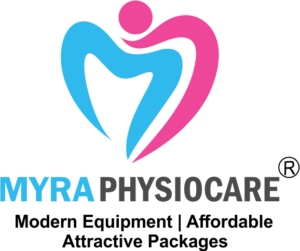Peripheral Nerve Injury Physiotherapy
Peripheral nerve injuries can cause weakness, numbness, and loss of function in the affected area.
Peripheral nerve injuries can cause weakness, numbness, and loss of function in the affected area. Physiotherapy can be a useful tool in the rehabilitation process for peripheral nerve injuries. Here are some ways that physiotherapy can help:
- estoring function: Physiotherapy can help to restore function and mobility in the affected area through exercises and other techniques.
- Strengthening exercises: Peripheral nerve injuries can cause muscle weakness in the affected area. Physiotherapy can help to strengthen the affected muscles through exercises and resistance training.
- Range of motion exercises: Nerve injuries can cause limited movement in the affected area. Physiotherapy can help to improve range of motion through stretching and range of motion exercises.
- Neuromuscular re-education: Nerve injuries can affect the communication between the brain and the affected muscles. Physiotherapy can help to improve this communication through neuromuscular re-education techniques.
- Sensory re-education: Nerve injuries can also affect the sense of touch in the affected area. Physiotherapy can help to improve sensory function through sensory re-education techniques.
- Pain management: Peripheral nerve injuries can cause pain and discomfort. Physiotherapy can help to manage pain through techniques such as massage, heat therapy, and cold therapy.
Peripheral nerve injuries can be challenging to recover from, as they can cause weakness, numbness, and loss of function in the affected area. Physiotherapy can play an important role in the rehabilitation process for individuals with peripheral nerve injuries. Here are some reasons why choosing peripheral nerve injury physiotherapy can be beneficial:
- Improved function: Physiotherapy can help to improve function and mobility in the affected area through exercises and other techniques.
- Faster recovery: Physiotherapy can help to speed up the recovery process by promoting healing and preventing further injury.
- Reduced pain and discomfort: Peripheral nerve injuries can cause pain and discomfort. Physiotherapy can help to manage pain through techniques such as massage, heat therapy, and cold therapy.
- Increased strength and range of motion: Peripheral nerve injuries can cause muscle weakness and limited movement in the affected area. Physiotherapy can help to increase strength and range of motion through exercises and resistance training.
- Improved quality of life: Peripheral nerve injuries can have a significant impact on an individual’s quality of life. Physiotherapy can help to improve function and mobility, which can lead to an improved quality of life.
Overall, peripheral nerve injury physiotherapy can help individuals to recover from their injury and improve their overall quality of life. A physiotherapist can work with the individual to create a customized treatment plan that is tailored to their specific needs and goals.
